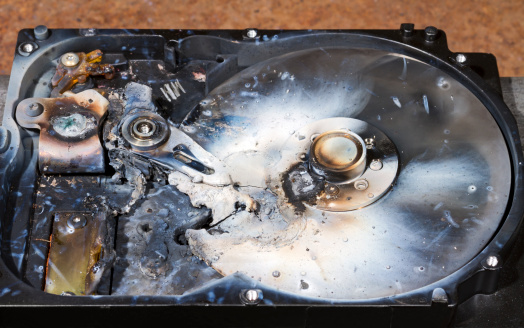Do you think “data backup” is synonymous with “disaster recovery”? Don’t worry, you’re not alone. Many uninformed business owners assume that backup, and disaster recovery are the same thing. The truth is, they are not, and serve very different purposes – making it important to have both in place. A Backup is only the first level of data protection. The second level, which gets people’s attention, is disaster recovery.

It is easy to be confused by this topic, as it can be difficult to clearly understand the difference between the two. And now, with service providers offering the confusing combined BDR services, it becomes even more confusing for consumers.
But not to worry, we are here to make this confusion go away! Learn the differences. As well as, some valuable insights into making the upgrade from a backup plan to a disaster recovery strategy – effectively, of course.
So, What Is A Backup?
Let’s start with the basics to learn backup vs. disaster recovery. What is backup? According to Wikipedia, a backup, or the process of backing up, refers to the copying and archiving of computer data so it may be used to restore the original after a data loss event.
This is critical for businesses to have in place! A backup will ensure data is protected in case of technical issues (crashed hard drive), employee accidents (deletion of an important file), or in the event of a theft (office break-ins). With this protection, you’ll be able to access a copy of your data and restore it easily.
Disaster Recovery – What Is It?
Disaster recovery, although similar to backup, is used in much larger instances. A complete image of your servers and disk drives are completely mirrored. Allowing you to restore the system quicker than reinstalling an OS and copying over all your files.
Disasters however, can present themselves in a variety of ways, including physical damage to hardware in a natural disaster, like a tornado. Having a disaster recovery plan in place, for such occurrences, will allow your employees to continue their work by using the mirrored system.
Importance Of Upgrading to a Disaster Recovery Plan?
Although a backup is very important, upgrading to a disaster recovery plan can ensure your company has the full protection it needs. The critical first step?
- Store your backups off-site. You can do this by storing your secondary copies in another location that is away from your servers or through a cloud hosted backup solution. To get the most reliable solution and easily access your files, we recommend using a cloud backup system.
- Time is another critical factor in the case of a disaster. One major benefit of having a disaster recovery plan, is that it will allow you to recover faster and eliminate having to wait for your data to be copied. Pairing that along with virtual servers can restore your system within an hour, if not minutes.
Do you need assistance in finding that right disaster recovery provider for you? With the managed business continuity plans and affordable backup services offered by {company}, you can rest easy knowing everything is in place to protect your information, and technology, from anything the future might throw at you.
For more information on how {company}’s Managed IT services can help you better understand the difference between backup and disaster recovery, contact us by phone at {phone} or send an email to {email}.
